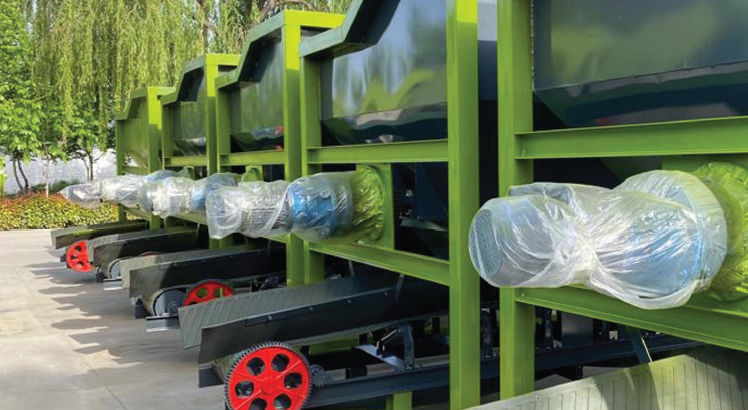Rural Development Investment Holdings (Rudevit) has rolled out a K1 billion organic fertiliser manufacturing plant, raising hope for the country’s agricultural production requirements amid rising fertiliser prices.
The plant, which goes into full operation in November this year, will lead to integrated fertiliser application that will, apart from reducing the cost of production, also help to improve agricultural productivity for both smallholder and commercial farmers.
Speaking in an interview on Tuesday, Rudevit board chairperson Hastings Bofomo Nyirenda said the project is a direct response to the soaring prices of fertiliser on the international market as the product will be sold cheaper locally.
He said: “This is a Malawian firm set up by Malawians for Malawians. By the end of the day, our vision is to ensure that Malawians are part of the firm, but also benefit from the same while creating jobs in the process.
Machinery for the organic fertiliser plant at Chileka in Blantyre
“This far all works to ensure that this project goes into full operation are taking shape with other machinery arriving in the country in a few weeks.”
Nyirenda said the company which has been set up at Chileka in Blantyre to produce 25 000 metric tonnes, will afterwards rollout in all strategic agricultural districts throughout in the country.
The project comes amid unprecedented spikes in fertiliser prices on the local market from about K20 000 to K60 000 per 50 kilogramme (kg) bag within two years.
The cost of fertiliser has risen by 90 percent since 2020 due to economic disruptions caused by Covid-19 and Russian- Ukraine war.
Spot-checks show agrodealers are selling a 50kg bag of Urea at K59 500 while CAN costs K55 000 per bag. Super D is selling at K75 000 while NPK now fetches K59 000 per bag.
Such increases for fertiliser prices do not make things better for a Malawian farmer as the Ministry of Finance and Economic Affairs allocated K109 billion to Affordable Input Programme in the K2.84 trillion 2022/23 National Budget, which is K32 billion less than what was allocated in the 2021/22 fiscal year.
Lilongwe University of Agriculture and Natural Resources head of crop and soil science department, Patson Nalivata, said on Tuesday that organic fertliser is a welcome development, but takes time for one to realise the high level intensive production.
He said: “The organic way is always encouraged because we realise that we mostly tend to focus on inorganic fertilisers because we intend to pack in elements which are critical for plant production.
“We need to try organic, but we should know that we have not reached the stage where we can go solely for organic because there is quality involved in organic.”
But Nalivata said organic is however critical because it improves soil health, which is good when it comes to ensuring that elements being applied to the soil are available for plant uptake.
Minister of Agriculture Lobin Lowe is on record as having indicated that prices for fertiliser will likely go up following global prices of the commodity, encouraging farmers to also use manure on their farms.
According to available data, the country requires about 611 000 metric tonnes of fertiliser to meet the farmer production needs annually.
The post K1bn organic fertiliser Plant rolls into action appeared first on The Nation Online.
 Moni Malawi
Moni Malawi 

